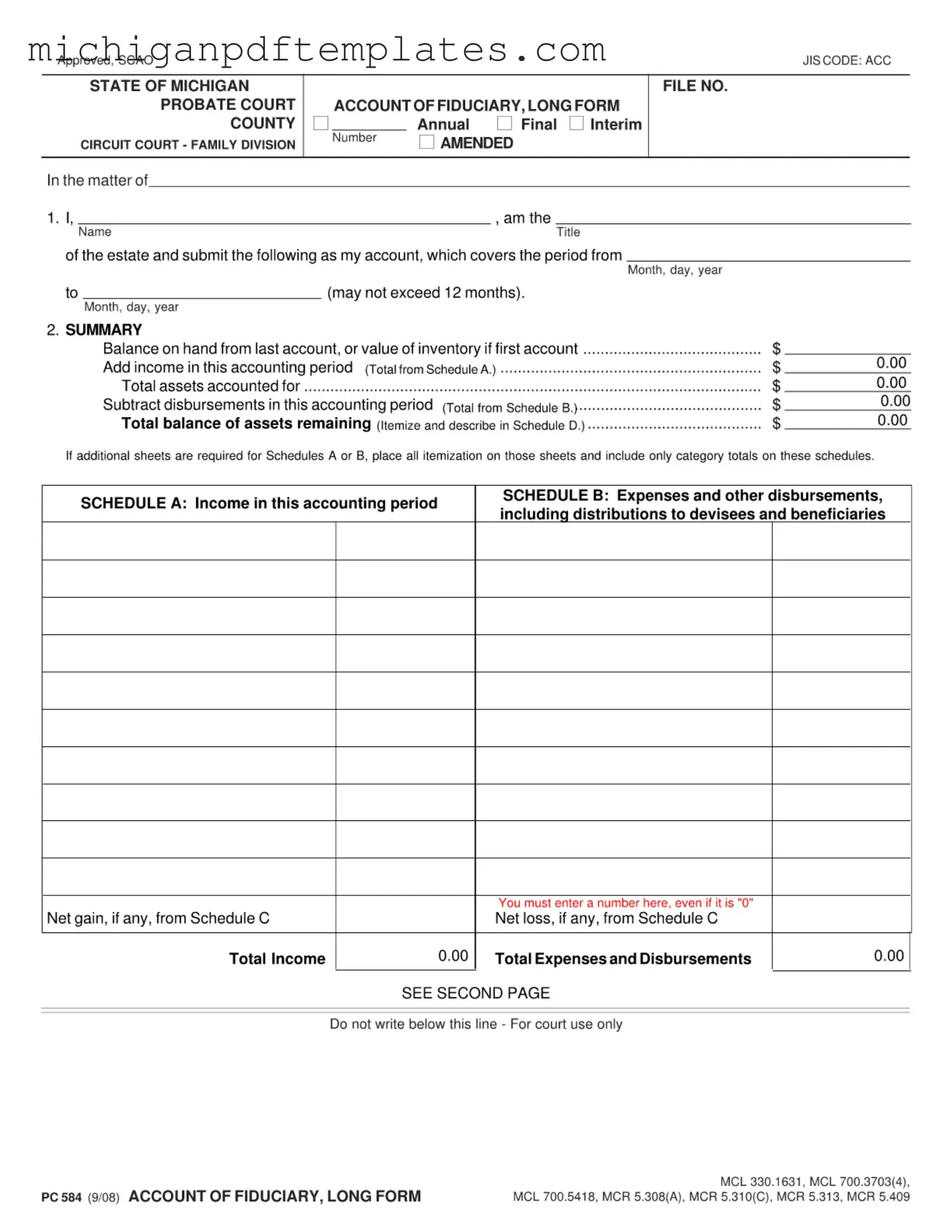Fill in Your Michigan Pc 584 Form
The Michigan PC 584 form, known as the Account of Fiduciary, Long Form, is used to report the financial activities of a fiduciary over a specified period. This form helps ensure transparency and accountability in managing an estate or trust. If you need to fill out this form, please click the button below.
Get Your Form Now

Fill in Your Michigan Pc 584 Form
Get Your Form Now

Get Your Form Now
or
▼ PDF Form
Finish this form quickly and move on
Fill in and complete Michigan Pc 584 online quickly.